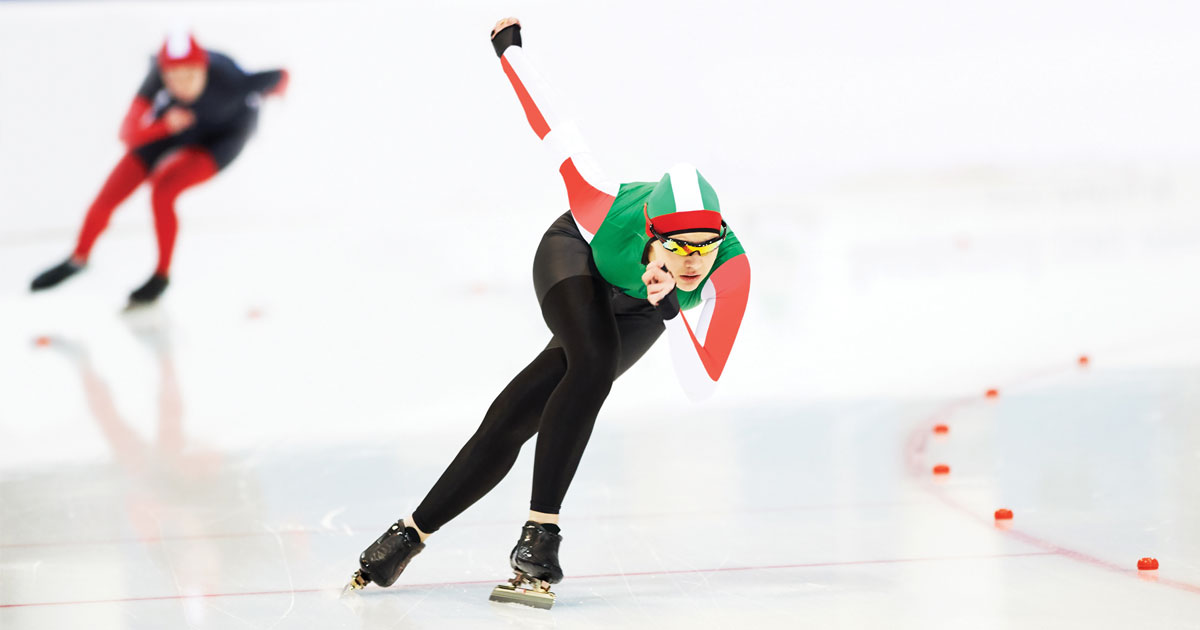On Friday, February 9th, athletes from around the world will come together for the opening ceremony of the XXIII Olympic Winter Games, more commonly referred to as the 2018 Winter Olympics. For the next 17 days, 90 countries will compete in over 100 events in 15 different sports, and will celebrate international camaraderie and sportsmanship, while promoting a sense of peace throughout the world. As a matter of fact, the official symbol of the games is five interlocking colored rings, representing the continents of North and South America, Asia, Africa, Europe, and Australia.
If you are like me, you might wish you were a pro in a winter or summer sport every two years when the Olympics are held. However, my athletic abilities are far from extraordinary. To satisfy my love for the Olympics, I learn all that I can about the games’ history, sports involved, and more. Read below to test your Olympic Winter Games knowledge, as well!
History of the Olympics
According to historians, the Olympic Games date back to 776 B.C. in ancient Greece. The games were used as a tribute to the Olympian gods and took place in Olympia, which is known in Greek mythology as the island of Pelops. The city’s central part was decorated with a temple of Zeus and a temple of Hera. The Olympic Games had a religious connection to the cult of Zeus and took place during the Olympiad, the four-year period between the competitions. The games were used in religious festivals held in honor of the god and aimed to show off the physical qualities of the competitors. For the next 12 centuries, the Olympic Games were continued in Olympia until 393 A.D., when the Roman Empire conquered Greece and Emperor Theodosius passed a decree that all “pagan cults” should be banned and converted to Christianity.
The Olympic Games were revived almost 1,500 years later by Baron Pierre de Coubertin of France. Coubertin wanted to increase awareness about physical education and had the idea to design a modern version of the Olympic Games. His inspiration came after visiting the site of ancient Olympia. In November 1892, the Baron discussed his plans of using the games as an international athletic competition to be held every four years at a Union des Sports Athletiques meeting in Paris. However, it wasn’t until two years later, he received the approval to found the International Olympic Committee. The committee still stands today and serves as the governing body of the games.
The first official modern Olympic Games took place in 1896 in Athens, Greece. Over 60,000 spectators and 280 participants from 13 nations competed in 43 events. The popularity of the games took over after the VIII Games in 1924 in Paris. Over 3,000 athletes from 44 nations competed and the first closing ceremony was held. Another huge moment in Olympic Games history also occurred in 1924, with the debut of the Winter Olympics.
Facts about the XXIII Olympic Winter Games
PyeongChang was selected to be the host of the 2018 games back in July 2011. The last time Korea hosted the Olympic Games was in 1988 with the Seoul Games. There are five key objectives to the competitions: cultural games, environmental games, games for peace, economic games, and ICT (information and communication technologies) games. Together, these goals associate the games’ slogan: Passion. Connected. According to the official website of the Olympic Games, this phrase was created with the purpose of promoting “a world in which everyone is connected with shared passion for winter sports; a world open to any generation anywhere, anytime, to open new horizons in the continued growth of winter sports.” In addition, PyeongChang’s emblem symbolizes an open world and uses the images of ice and snow to portray the winter sports and athletes throughout the various countries.
As for the mascot of the Olympic Games, its name is Soohorang and it is based on the white tiger. This animal is considered Korea’s guardian animal and “Sooho” in Korean means protection. “Rang” comes from “Ho-rang-i,” which means tiger and is in “Jeong-seon-A-ri-rang,” a traditional folk song about the Gangwon Province, the location in PyeongChang where the games will take place. Together, this mascot portrays a sense of protection to the athletes, spectators, and attendees.
Sporting Events
All of the Olympic Games sports are divided into three categories: snow sports, ice sports, and sliding sports. Some highlights of this year’s games include over 100 gold medals that will be awarded and six new sports that are offered. These sports are Snowboard Big Air (men and women), Speed Skating Mass Start (men and women), Curling Mixed Doubles, and Alpine Skiing Team Events. Other favorite sports that are returning this year are:
Snow Sports: Alpine Skiing, Biathlon, Cross-Country Skiing, Freestyle Skiing, Nordic Combined, Ski Jumping, and Snowboarding.
Ice Sports: Short Track Speed Skating, Speed Skating, Figure Skating, Ice Hockey, and Curling.
Sliding Sports: Bobsleigh, Luge, and Skelton.
The 2018 Olympic Winter Games are sure to be a fantastic event. From the parade of nations at the opening ceremony to the events at the closing ceremony and all the sporting events in between, these games have something for everyone. What event or events are you most excited about?
For more information about the XXIII Olympic Winter Games and for a schedule of sporting events, visit: olympic.org/pyeongchang-2018






















